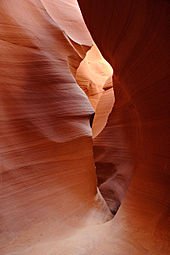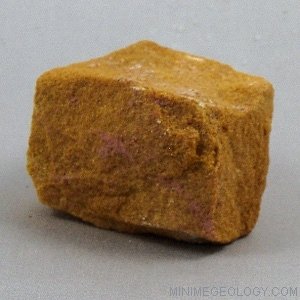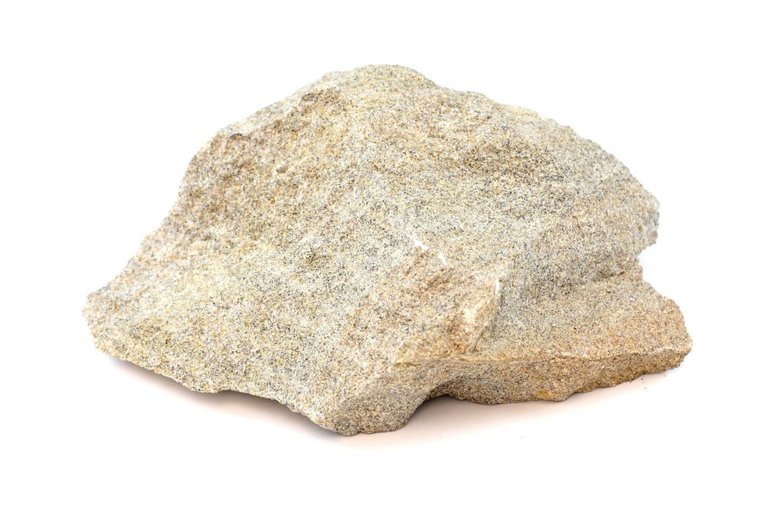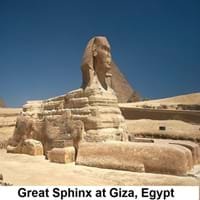
Red sandstone interior of Lower Antelope Canyon, Arizona, worn smooth by erosion from flash flooding over thousands of years.
Image credit: Wikipedia
Sandstone is composed of sand-sized (0.0625 -
2)mm rock fragments and/or mineral particles. Most sandstone consists of high resistant minerals to weathering such as quartz and feldspar.
Sandstone may be any colour depending on the colour of the the rock fragments contained in it and also the impurities within the minerals forming it. Most common colours are red, grey, white, brown.

Yellow Sandstone

White Sandstone
Sandstone is a highly porous rock which allows the percolation of water and other fluids through them. Because of their porous nature, they can store large quantities of water and crude, making them naturally occurring aquifers and petroleum reservoirs.
Mode of Formation
They're formed from the deposition, accumulation and cementation of grains that may have either originated from fragments of pre-existing rocks or mono-minerallic crystals. The cement serving as a binding agents may be typically calcite, clays and silica.
Types of Sandstone
Sandstones are classified based on their mineralogy and on the type of matrix present in between the framework grains.
Quartz Arenites: They're sandstones with at least 95% quartz grains and they're the most compositionally mature sandstones.
Arkose: They're composed of 25% of feldspar, much quartz and some rock fragments.
Litharenites: They're characterized by a rock fragment content with excess feldspar.
Greywackes: They're fined grained matrix which consists of intergrowth of chlorite, sericite and silt-sized grains of quartz and feldspar. They're also known as immature sandstone.
Uses of Sandstone


The Main Quadrangle of the University of Sydney, also known as sandstone university
Image credit: Wikipedia
It's a common building and paving material including asphalt concrete. It is also used for artistic purposes to create ornamental fountains and statues.
You received a 10.0% upvote since you are not yet a member of geopolis.
To read more about us and what we do, click here.
https://steemit.com/geopolis/@geopolis/geopolis-the-community-for-global-sciences-update-2-higher-base-votes-new-logo
If you do not want us to upvote and comment on your posts concerning earth and earth sciences, please reply stop to this comment and we will no longer bother you with our love ❤️
Thanks. I have read about geopolis and I love it. I would want to join.
Great and awesome post